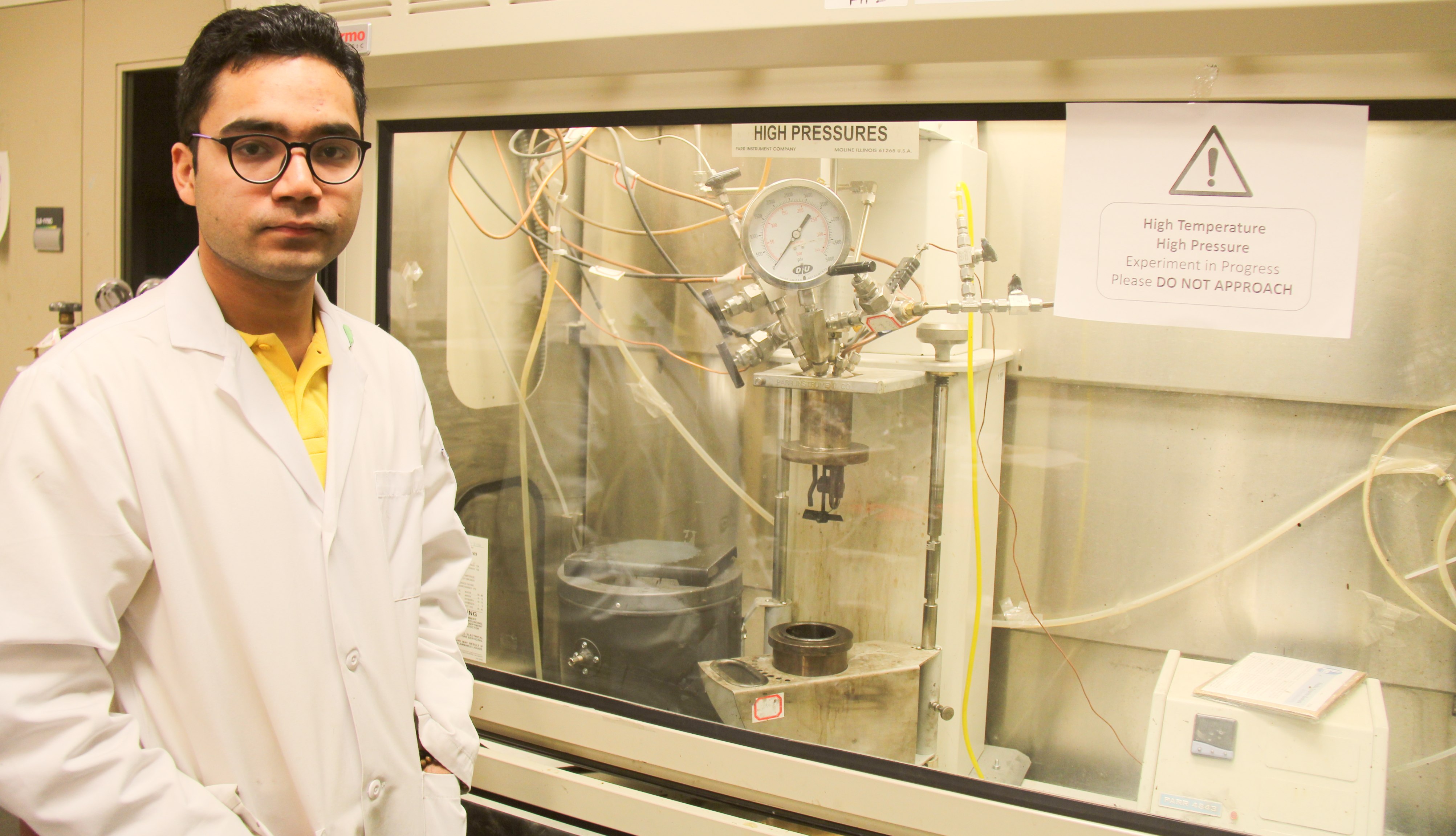
Engineering at Alberta graduate student Ankit Mathanker is changing the molecular structure of plant waste to convert it into a high-energy, low-emissions fuel source.
(Edmonton) Agriculture and energy-Alberta's two most iconic industries-could soon be supplementing each other.
Ankit Mathanker, an Engineering at Alberta graduate student, is refining a process to turn non-edible byproducts of farming such as straw or other leftovers from agricultural production, called agricultural biomass, into fuel.
Fresher fuel
In a world trying to balance the need to reduce greenhouse gas emissions with increased energy demands, turning agricultural biomass into biofuel can help balance the scale.
Mathanker is using a pressure cooker-like device called an autoclave reactor to convert the waste into fuel. The reactor is capable of heating the biomass up to 500 C and exposing it to up to 4,000 PSI of pressure.
Under these extreme conditions, biomass undergoes significant changes in its chemical properties and is restructured in way that increases its total energy value. The novelty of the project is that it utilizes the biomass along with its moisture. Mathanker's process has an advantage over other methods of creating biofuel as it "saves an additional investment required to remove moisture from the biomass."
Collaborating with other researchers through Future Energy Systems has enabled Mathanker's project to have a carbon neutral impact from pipeline transport to production.
Global Interests
While working on his undergraduate degree in chemical engineering at the Indian Institute of Technology in Dhanbad, India, Mathanker developed an interest in climate change and was guided into the studies of carbon capture by his supervisor, Arunkumar Samanta. Engineering at Alberta has provided him with the right opportunity to continue his research interests.
Mathanker found like-minded researchers working toward a greener future. Mathanker is working under the supervision of Raj Gupta, a chemical engineering professor, and in collaboration with Amit Kumar, a mechanical engineering professor and scientific director of Future Energy Systems.
"Seeing people around me working on the same sector, in different ways and with different technologies, going to the same goal, that's really incredible."
Future Energies
Mathanker is optimistic about the future of sustainable energy sources. As global energy demands rise, renewable energy sources can supplement existing energy infrastructures while repurposing waste.
"If we have these kind of raw materials (biomaterials), which can be utilized in different ways to generate energy uses, and support the existing technologies, even if we are able to fulfill 10 per cent of our energy requirement with that particular fuel, that's more than enough."